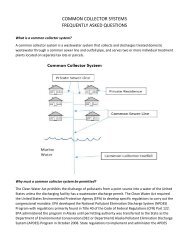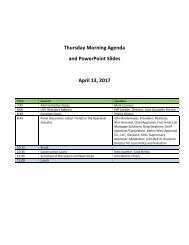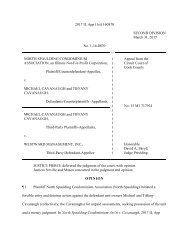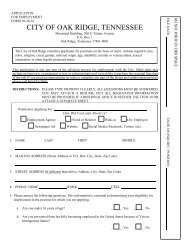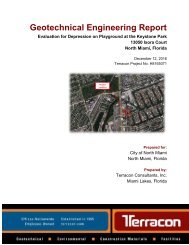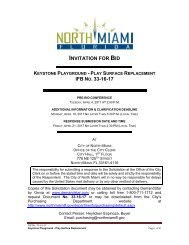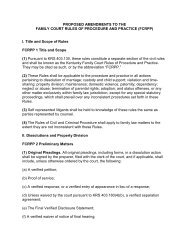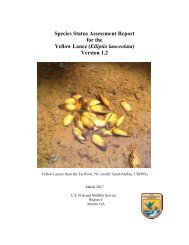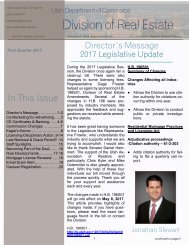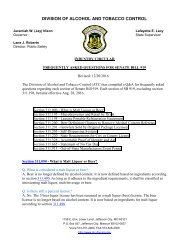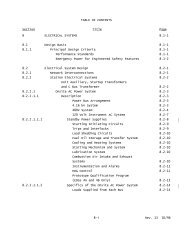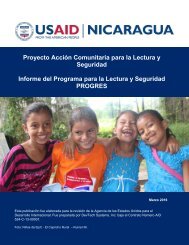COMMUNITY DISPUTE RESOLUTION IN TIMOR-LESTE
PA00MJQC
PA00MJQC
You also want an ePaper? Increase the reach of your titles
YUMPU automatically turns print PDFs into web optimized ePapers that Google loves.
sometimes the same individuals who would have been responsible for adjudicating disputes<br />
according to lisan, more often they are not. Identifying whether the methods used are secular or<br />
spiritual is also not simple. Some interviewees spoke of adopting customary religious (lulik) rituals<br />
into otherwise secular dispute resolution procedures in order to increase compliance through a<br />
fear of consequences arising from a breach.<br />
• Respondents frequently used the term “mediation.” Many community leaders have received<br />
training on mediation and dispute resolution and appear to have at least a basic understanding of<br />
these concepts. Those met with for this research stated that when they resolve a dispute, the<br />
parties themselves decide on the outcome and are free to reject any settlement reached.<br />
However, interviewees who have observed informal justice mechanisms in the community<br />
expressed doubt as to whether outcomes are truly voluntary. Some described community leaders<br />
actively urging parties to “agree” to a resolution, or of the unspoken pressure inherent in a<br />
settlement suggested by a respected community leader. Suku leaders also spoke of summonsing<br />
parties to respond to complaints, a procedure which suggests that community members are under<br />
some pressure to participate in and comply with the process.<br />
These general observations suggest that community-based informal justice mechanisms are not<br />
readily able to be categorized, either as traditional/customary practices, or as a particular type of<br />
dispute resolution (mediation, arbitration etc.). Procedures used are flexible and vary depending on<br />
the individuals involved and the case in question. They may incorporate various elements of custom<br />
as well as practices learned through mediation training; roles of participants and facilitators may not<br />
be clearly defined as in a formal mediation or arbitration, making it difficult to apply ADR concepts to<br />
these procedures.<br />
In many sukus, written records are made of dispute resolution outcomes. These typically explain<br />
something brief about the dispute, and the outcome (for example compensation payments or<br />
exchanges to be made between the parties). Attendees or community members may be asked to<br />
witness the written agreement. It was said in some communities that this is a means by which to apply<br />
social pressure on parties to comply with the agreement.<br />
Many of the features of community justice mechanisms identified above are also reasons why<br />
involving lawyers in them has proved very difficult. Procedures often occur on little or no notice, in<br />
remote areas. Participants live far away from key legal services such as public defenders and the few<br />
existing private legal aid organisations. Moreover they are unlikely to identify a need for legal advice<br />
in the context of informal procedures. Despite past sporadic attempts by some agencies to develop<br />
community-based paralegal networks, no large scale program of this kind has been developed. Public<br />
defenders are overstretched dealing with formal proceedings, 23 and while the legal aid organizations<br />
supported by Ba Distrito appear willing to assist in the context of ADR mechanisms, they are few in<br />
number and have limited resources. 24<br />
Some of the same problems which hamper the provision of legal assistance in community procedures<br />
also make systematic monitoring of these mechanisms difficult. Because procedures happen on short<br />
notice in remote locations it is difficult to envisage a system for monitoring other than the use of<br />
monitors who live within communities themselves and perhaps monitoring on an ad hoc (part-time)<br />
basis. However, training such persons to ensure consistent and objective gathering of information<br />
would be particularly difficult. This is because community mechanisms do not follow rigid procedures<br />
and some of the questions of most interest (such as any real or perceived bias by facilitators or<br />
decision-makers) are inherently difficult to assess from an objective perspective in any event. Despite<br />
this, it is possible to conceive of methods for systematically monitoring community dispute<br />
resolutions, but implementing them would require a long-term engagement with community-based<br />
23<br />
Ba Distrito, Access to Justice Brief: Legal Assistance in Timor-Leste: Summary of Assessment Findings and<br />
Recommendations, September 2014, especially pp12 and 14, JSMP, Overview of the Justice Sector 2015, p13.<br />
24<br />
Ba Distrito, Access to Justice Brief: Legal Assistance in Timor-Leste: Summary of Assessment Findings and<br />
Recommendations, September 2014, especially p9.<br />
7



